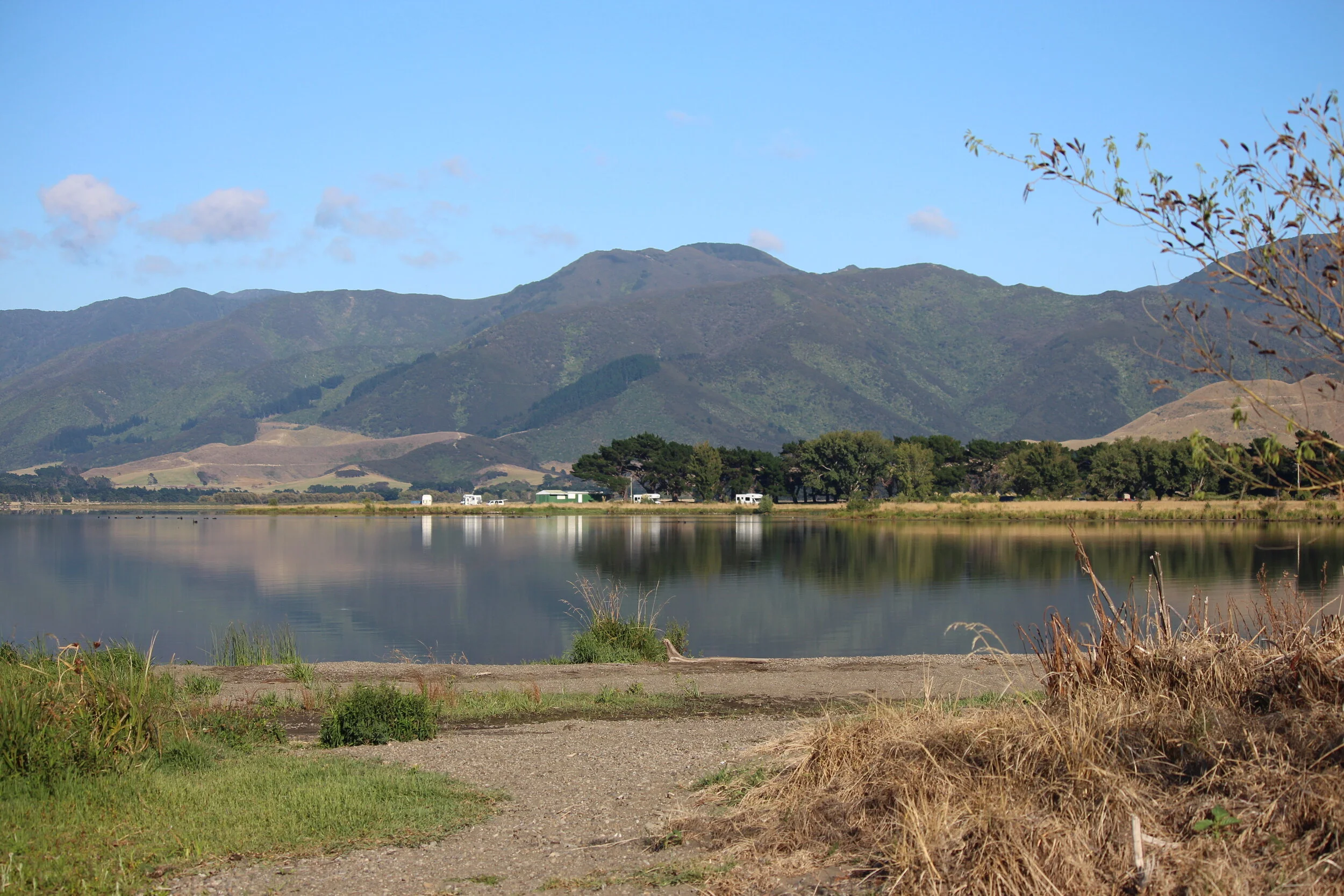An interview with Ruamāhanga
This kōrero (story) was written by Rawiri Smith (Ngāti Kahungunu ki Wairarapa)
Interviewer: How’s life?
Ruamāhanga: Does everyone say I’m busier than I’ve ever been?
Interviewer: Well a lot of rivers say that and a few streams do too. Why are you so busy?
Ruamāhanga: We’re protecting assets?
Interviewer: Your assets?
Ruamāhanga: No they’re human assets. It used to be just bridges, but now it’s houses, farm lands and even fishing spots.
Interviewer: What about your assets?
Ruamāhanga: Well people were trying to protect our banks, but that now feels like we’re being kept in. I’m not allowed to go to some places. I feel a bit trapped.
Interviewer: You’re looking a bit different than I remember you.
Ruamāhanga:Yeah, we’ve all been redesigned. It’s so my waters can get out to the sea quickly.
Interviewer: You’ve been straightened up in lots of places - how is that?
Ruamāhanga: Doesn’t everyone want to be streamlined? Yeah the figure was good at first, but I would rather leave that shape to the streams.
Interviewer: Is there something that happened after that?
Ruamāhanga: I umm… didn’t have the same connections as I used to have. Some of the fish and birds didn’t stay in my straight lines because all the curves and turns were where they used to build their homes. The insects stopped hanging around. The birds came to rest and live on my gravels, but things have changed.
Interviewer: That’s a lot, but what else has changed?
Ruamāhanga: Well my neighbours have changed. My waters would run past repo or wetlands all the way down the river. At times my waters would run into them and the repo said they enjoyed that because it was refreshing to clean out the sediment. Most of them are gone now. Not many giant kahikatea in their family lots or big patches of harakeke. Now there are exotic neighbours like rye grass and pine forests. They’re different because they don’t bring all the different creatures the repo used to have living in our neighbourhood.
You know the friend I miss the most?
Interviewer: Who’s that?
Ruamāhanga: Lake Wairarapa. My waters used to run into Lake Wairarapa and we would share our way to the sea through Ōnoke and then out. I see Wairarapa’s waters flowing into mine below the barrage gates, but it is only a whisper compared to how we used to meet. Our combined flood waters were huge. We used to go right back to Papawai, where the water would spread. The eels would venture into new places and they would love the food they would find. That is all a memory now. I can’t even see over the new banks people built.
Interviewer: Are you busy so you don’t think about this?
Ruamāhanga: Maybe. I think others have made me busy doing what they want
Interviewer: Hopefully they will ask you what you want. Thank you for your time.
ABOUT THE AUTHOR
I am an uri of Wairarapa. That is more than people, outstanding people. I am descended from explorers like Kupe, Whatonga and Tamatea Ariki; the priestly Popoto, Ruawharo and Tupai in the waka kōrero; the whare wānaga professors include Matorohanga, Nukutamaroro and Nepia Pohuhu; hapū leaders like Taaneroa, Moeteao and Hintearorangi. Then there is the ancestor who brought peace, Rongotaketake, Nukupewapewa. I am humble to descend from Gods, Io, Ranginui, Papatūānuku are familiar as is Tāne, but other atua like Hinemoana and Rongomaiwhakateka too. This context means I descend from the land and the waters, including Wairarapa Moana. I am Rawiri Smith.

